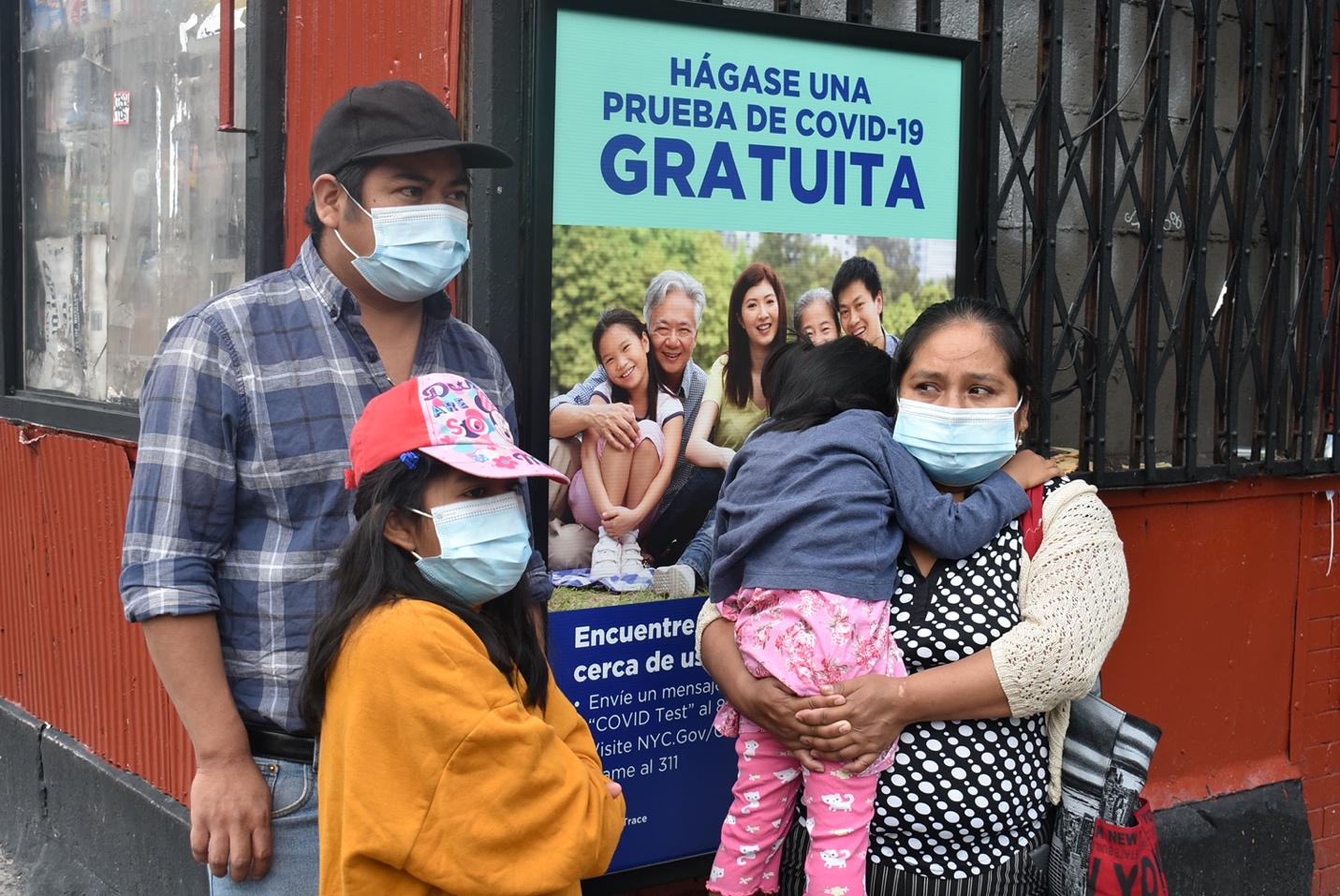Mott Haven resident Eduardo Catalán said he paid his rent in May, but that his landlord, Simcha “Sam” Applegrad evicted him, his wife, Maricela, and their two children, Isabela, 9, and Yulisa, 3, from their apartment despite the COVID-19 pandemic.
There has been a state-wide moratorium on evictions since March because of the pandemic, and it was recently extended to Oct. 1. Landlords can file for eviction warrants in housing court, but no action can be taken until the moratorium expires.
On Wednesday, the Cataláns, fellow tenants and the members of the South Bronx Tenants Movement planned to meet Applegrad at the apartment at 387 E. 138 St. to discuss getting the family back in the building. When Applegrad refused to speak with the group that morning, it turned it to a protest.
“What do we want? A meeting,” the crowd of 11 protestors shouted. “When do we want it? Now.”
Eduardo said Applegrad kept asking the family to leave for repairs that were never fully explained to them, saying he could set them up with another apartment. Finally, after allegedly being harassed by Applegrad and the building superintendent multiple times, the family complied to Applegrad’s request.
Now, they’re living in another one of Applegrad’s apartments on Allerton Avenue, about 40 minutes away by train and bus. The children ask their parents when they’re going back home where they lived for four years and to their old school that used to be just around the block on Willis Avenue.
“I don’t like the place where we’re living because it’s far away from everything,” Eduardo said. “My children can’t go to the same school.”
To get their apartment back and possibly pursue a lawsuit, the Cataláns are being assisted by the South Bronx Tenants Movement, a grassroots organization that advocates for tenants’ rights.
Emmanuel Pardilla of the movement said Applegrad intimidated the Cataláns into leaving their home. He said the super once broke into their apartment while they were sleeping and Applegrad changed the locks on the apartment before they could finish moving all their belongings to the building on Allerton Avenue.
“(Applegrad) is a landlord implementing very discriminatory practices, being racist, taking advantage of the fact that Ms. Maricela and her family are indigenous (Mexicans),” he said. “It was (Applegrad’s) workers that knocked on her door every single day, literally begging her to leave despite the pandemic, despite the eviction moratorium, despite all the protections that New Yorker just like Maricela have.”
Applegrad, who purchased the building on E. 138 St. in March, according to city Department of Finance records, doesn’t have the best reputation among New York City landlords. He was listed number 46 on the city’s Public Advocates Worst Landlords list and number 18 on the Right to Counsel Worst Evictors list.
The building’s Tenant Association sent Applegrad a letter in August, concerning issues of harassment toward tenants and repairs to the building.
When asked about the meeting with the tenants that was supposed to happen Wednesday morning, Applegrad kept it brief.
“There was a meeting scheduled, sure,” he said.
Then he hung up.
South Bronx Tenants Movement member Aldo Resendiz said it’s easy for Applegrad and other landlords to cheat the system. Working-class, immigrant, non-English speaking families who don’t understand their rights as tenants are being targeted for evictions, Resendiz said.
Eduardo and Maricela moved to New York City from Guererro, Mexico. Eduardo worked in a restaurant but was let go in March because of the pandemic. The family can speak Spanish, but their first language is Tlapaneco, a native language of southern Mexico that only about 130,000 people speak.
“The city has really failed at providing information and support to its most vulnerable residents,” Resendiz said. “Even when you see this information – it’s barely available – it’s often only available in Spanish or English. There’s really no effort in the city to let tenants know about their rights, especially during a pandemic.”

